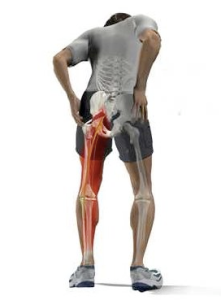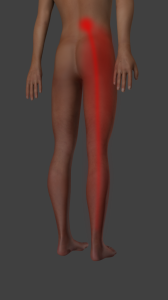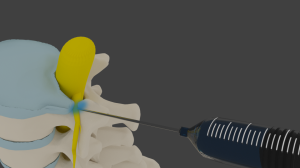Sciatica is a common condition that causes pain in millions of people every day. While common, it is often misunderstood. Below we discuss some common myths associated with Sciatica:
Myth #1: Sciatica is a Disease
Sciatica is not a disease. Rather, it is a group of symptoms that are typically caused by a number of issues such as a herniated disk in the lower back. In other words, sciatica is the manifestation of a more serious health issue, but not a disease.
If a disk herniation occurs as a result of a work injury, it would be prudent to receive treatment at a workers comp clinic with a pain doctor.
Myth #2: Surgery is the Only Cure for Sciatica
While surgery may be the appropriate method to treat sciatica, it is not the only effective form of treatment. Typically, surgery is the last option recommended by a workers comp pain management doctor. The most common treatment pathway consists of starting with the least invasive treatment options.
For all of its benefits, surgery has its downsides:
- Surgery is very expensive
- There are several risks associated with surgery
- There is some downtime associated with undergoing surgery.
The best option is to find a knowledge and reputable workers compensation doctor who can recommend less invasive, yet effective treatment methods. Typically it is best to explore other treatment options before considering surgery.
Treatment options such as an exercise program, stretching, soft tissue therapy, dietary adjustments and other lifestyle adjustments can help you find relief without having to go under the knife.
Myth #3: Total Bed Rest is the best Way to Treat Sciatica
While bed rest can be part of a treatment plan for sciatica, it can also cause a variety of

Epidural injections often help people avoid surgery.
problems including making the issue worse. Inactivity over a lengthy period of time can actually cause sciatica and other back problems.
Myth #4: Sciatica is caused by a Slipped Disk
A slipped disk may cause sciatica, but it is not the only cause. In the case of a slipped or herniated disk, it slips out of position and causes pressure on the nerve. Other possible causes for sciatica include:
- Spinal stenosis: this is caused by a decrease in the canal between vertebrae., which puts pressure on the nerves.
- Trauma: accident or injury to the back can cause sciatica.
- Degenerative disk disease: disks in the lower back associated with injury or aging can lead to sciatica pain from a torn disc leading to a chemical inflammation.
- Spinal tumors: tumors in the low back area can compress nerves. This is a less common cause of sciatica.
Myth #5: Sciatica is Hereditary
Sciatica can affect anyone. It does not run in families. There are a variety of causes, but family health history is not one of them.






Leave A Comment